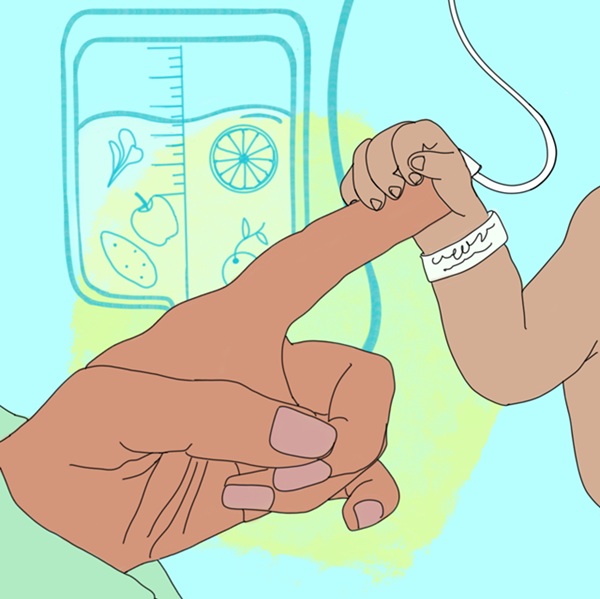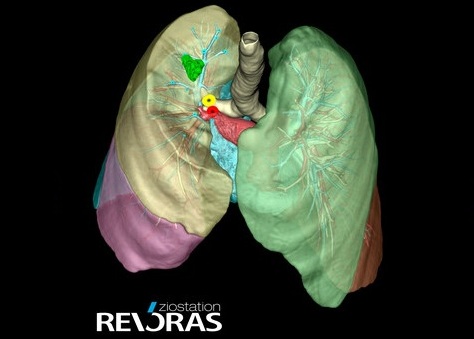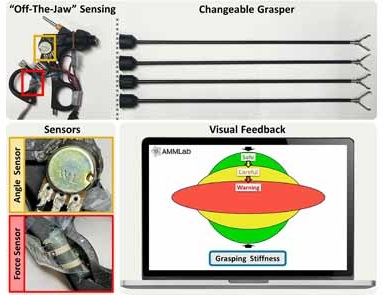Philips and Mass General Brigham Collaborate on Improving Patient Care with Live AI-Powered Insights
|
By HospiMedica International staff writers Posted on 21 Feb 2025 |
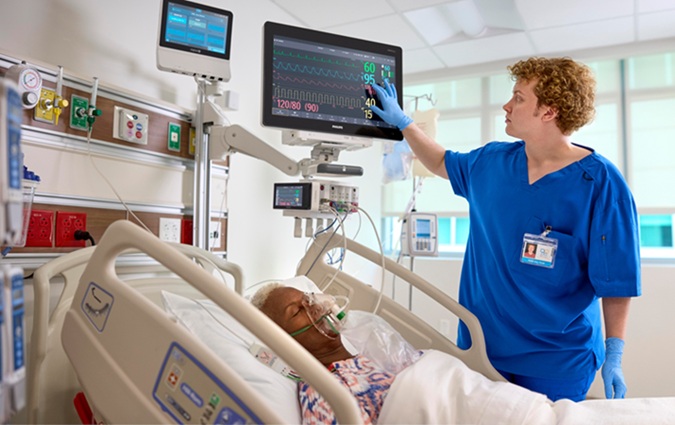
Royal Philips (Amsterdam, The Netherlands) and Mass General Brigham (Cambridge, MA, USA) have formed a strategic partnership to develop and implement advanced data infrastructure and artificial intelligence (AI) solutions. This collaboration is designed to integrate and process live healthcare data from a wide array of sources, with the goal of enhancing patient care.
In the current healthcare landscape, providers often rely on a mix of disconnected data sources, including static Electronic Medical Records (EMRs), clinical notes, and isolated device alarms. The joint initiative between Philips and Mass General Brigham seeks to address this by streaming accurate, reliable, and detailed data from various medical devices and other inputs. This will create a scalable, unified ecosystem for near real-time data and insights. By leveraging Philips’ software platforms, the collaboration intends to allow clinicians to capture, analyze, and act on data as it becomes available, thereby potentially improving the efficiency and effectiveness of patient care. The combined effort will utilize Philips' technology to merge active data streaming from bedside medical devices, such as ventilators and monitors, with other long-term clinical data, like lab results and EMR information, to develop a comprehensive, actionable data environment. The Philips Capsule Medical Device Information Platform will integrate data from diverse devices, while Philips Clinical Insights Manager will facilitate retrospective analysis, and Philips Capsule Surveillance will employ continuous algorithmic processing to generate smart alerts for live clinical use.
For this collaboration, Mass General Brigham is contributing the expertise of its biomedical engineering team, clinical sub-specialists, digital teams, and its internal AI business unit, Mass General Brigham AI, working alongside Philips’ research and business teams. Together, they aim to enhance data integration, deliver meaningful data insights, and develop new algorithms capable of identifying patient cohort patterns and generating intelligent alerts for timely clinical interventions. These alerts will provide clinicians with actionable insights during critical moments, aiding in improved patient outcomes. The initial research program in this collaboration will focus on patients undergoing continuous, real-time heart monitoring. By analyzing this data, the research intends to improve the early detection of cardiac events and other critical health issues, which could potentially save lives and expedite treatment.
“This collaboration between Philips and Mass General Brigham represents a significant step forward in the integration of advanced data analytics into clinical practice,” said Betsabeh Madani Hermann, Global Head of Research at Philips. “By developing predictive data analytics and AI algorithms, key tools for enhancing patient care, we’re empowering clinicians and supporting better care for more people.”
"This exciting collaboration marks a key step forward in healthcare innovation, harnessing the full potential of AI and medical device data to advance patient safety, operational efficiency, clinician ergonomics, while opening new discovery possibilities,” added Dr. Tom McCoy, Medical Director of Biomedical Engineering at Massachusetts General Hospital. “By mobilizing previously siloed medical device data into an integrated high speed, high resiliency, real time data fabric we will be able to deliver the transformative potential of software to the patients who need it most."
Latest Business News
- Expanded Collaboration to Transform OR Technology Through AI and Automation
- Becton Dickinson to Spin Out Biosciences and Diagnostic Solutions Business
- Boston Scientific Acquires Medical Device Company SoniVie
- 2026 World Hospital Congress to be Held in Seoul
- Teleflex to Acquire BIOTRONIK’s Vascular Intervention Business
- Arab Health 2025 Celebrates Landmark 50th Edition
- Boston Scientific Acquires Medical Device Company Intera Oncology
- MEDICA 2024 to Highlight Hot Topics of MedTech Industry
- Start-Ups To Once Again Play Starring Role at MEDICA 2024
- Boston Scientific to Acquire AFib Ablation Company Cortex
- Hologic Acquires Gynesonics to Strengthen Existing Gynecological Surgical Business
- Smith+Nephew and JointVue Partner on Ultrasound Preoperative Planning in Robotics-Assisted Surgery
- Stryker Completes Acquisition of NICO Corporation
- BD Completes Acquisition of Critical Care from Edwards Lifesciences
- ZOLL to Acquire Vyaire Medical’s Ventilator Business
- Getinge Acquires Organ Transport Products and Services Company Paragonix Technologies
Channels
Artificial Intelligence
view channel
Innovative Risk Score Predicts Heart Attack or Stroke in Kidney Transplant Candidates
Heart researchers have utilized an innovative risk assessment score to accurately predict whether patients being evaluated for kidney transplants are at risk for future major cardiac events, such as a... Read more
AI Algorithm Detects Early-Stage Metabolic-Associated Steatotic Liver Disease Using EHRs
Liver disease, which is treatable when detected early, often goes unnoticed until it reaches advanced stages. Metabolic-associated steatotic liver disease (MASLD), the most prevalent form of liver disease,... Read moreCritical Care
view channel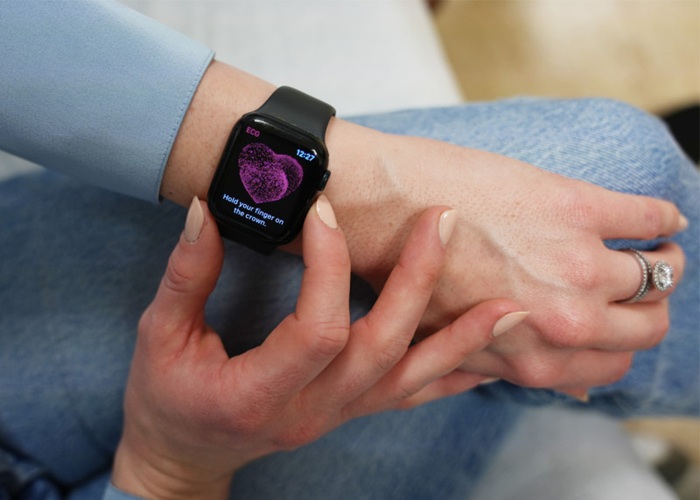
Wearables Could Reduce Need for Continuous Blood Thinners in Patients with Atrial Fibrillation
Atrial fibrillation (AFib) is the most prevalent heart arrhythmia, affecting over 5 million individuals in the United States, with projections suggesting that number could rise to 12.1 million by 2030.... Read more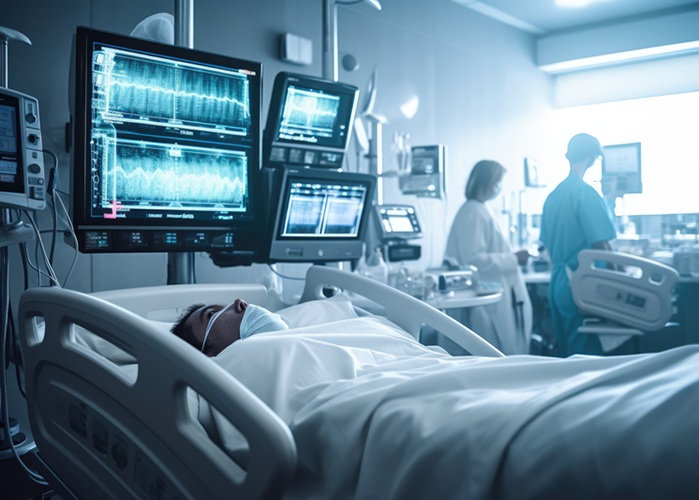
AI Model Provides Real-Time Sepsis Risk Alerts for Improving ICU Patient Survival
Sepsis is a leading cause of death in intensive care units (ICUs), caused by an overwhelming response to infection in the body. Despite advancements in medical treatment, its in-hospital mortality rate... Read moreSurgical Techniques
view channel
Tiny Robotic Tools Powered by Magnetic Fields to Enable Minimally Invasive Brain Surgery
Over the past few decades, there has been a significant surge in the development of robotic tools designed to facilitate minimally invasive surgeries, improving recovery times and patient outcomes.... Read more
Magnetic Tweezers Make Robotic Surgery Safer and More Precise
Microrobots are small-scale robots designed using nanotechnology, and they hold significant potential for various medical applications, including surgery, targeted drug delivery, and biopsy.... Read morePatient Care
view channel
Portable Biosensor Platform to Reduce Hospital-Acquired Infections
Approximately 4 million patients in the European Union acquire healthcare-associated infections (HAIs) or nosocomial infections each year, with around 37,000 deaths directly resulting from these infections,... Read moreFirst-Of-Its-Kind Portable Germicidal Light Technology Disinfects High-Touch Clinical Surfaces in Seconds
Reducing healthcare-acquired infections (HAIs) remains a pressing issue within global healthcare systems. In the United States alone, 1.7 million patients contract HAIs annually, leading to approximately... Read more
Surgical Capacity Optimization Solution Helps Hospitals Boost OR Utilization
An innovative solution has the capability to transform surgical capacity utilization by targeting the root cause of surgical block time inefficiencies. Fujitsu Limited’s (Tokyo, Japan) Surgical Capacity... Read more
Game-Changing Innovation in Surgical Instrument Sterilization Significantly Improves OR Throughput
A groundbreaking innovation enables hospitals to significantly improve instrument processing time and throughput in operating rooms (ORs) and sterile processing departments. Turbett Surgical, Inc.... Read moreHealth IT
view channel
Printable Molecule-Selective Nanoparticles Enable Mass Production of Wearable Biosensors
The future of medicine is likely to focus on the personalization of healthcare—understanding exactly what an individual requires and delivering the appropriate combination of nutrients, metabolites, and... Read more
Smartwatches Could Detect Congestive Heart Failure
Diagnosing congestive heart failure (CHF) typically requires expensive and time-consuming imaging techniques like echocardiography, also known as cardiac ultrasound. Previously, detecting CHF by analyzing... Read morePoint of Care
view channel
Handheld, Sound-Based Diagnostic System Delivers Bedside Blood Test Results in An Hour
Patients who go to a doctor for a blood test often have to contend with a needle and syringe, followed by a long wait—sometimes hours or even days—for lab results. Scientists have been working hard to... Read more












